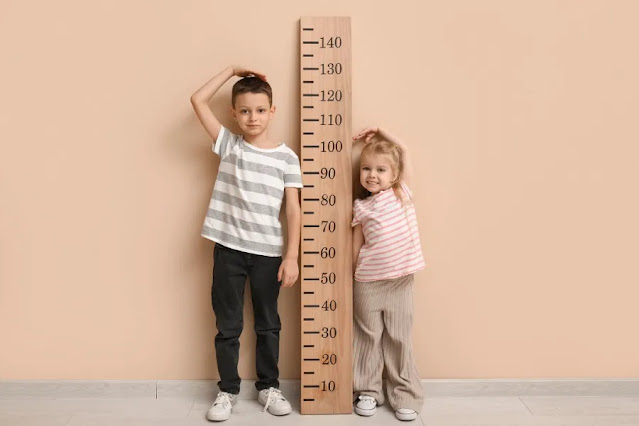One of the greatest joys for a mother is watching her child grow and develop physically and mentally at a normal pace compared to peers. However, sometimes a child’s growth may be delayed for various reasons, such as insufficient nutrition, genetic factors, or health issues affecting development.
What is Delayed Growth in Children?
Delayed growth is a medical term describing when a child’s physical and mental development, as well as skill acquisition, do not match the expected rates for their age. This can include:
-
Short stature or low weight gain.
-
Delay in motor skills (like sitting, crawling, walking).
-
Speech and communication difficulties.
Delayed growth may be noticeable at birth if the baby is unusually small or weighs less than expected or may become apparent over time compared to other children.
When is a Child Considered Growth-Delayed?
Before age five, a child may be considered growth-delayed if:
-
Their size or height is smaller than 95% of children their age.
-
Their growth rate is slower than typical, for example:
-
First year: grows about 25.4 cm (10 inches).
-
From 1 to 2 years: grows about 12.7 cm (5 inches).
-
From 2 to 3 years: grows about 8.9 cm (3.5 inches).
-
Signs of Delayed Growth from 1 to 3 Years Old
-
At 2 months: Cannot lift head while lying down.
-
At 3 months: Does not respond to sound or light, weak head control.
-
At 4 months: Does not put objects in mouth or lift body.
-
At 5 months: Cannot sit with support or move much.
-
Between 7-9 months: Poor head control and sitting posture.
-
At 10 months: Has not started crawling or is uncoordinated.
-
After 1 year: Cannot walk even with help, no simple words spoken.
-
After 2 years: Frequent falls, unsteady walking, no clear speech.
-
By 3 years: Cannot climb stairs even with help, poor growth in height and weight, unclear speech.
Additional Warning Signs
-
Child looks smaller than classmates.
-
Growth less than 5 cm per year after age 3.
-
Slow development of physical, social, or cognitive skills.
-
Disproportionate limb size compared to torso.
-
Symptoms like blood in stool, diarrhea, vomiting, constipation.
-
Signs of hormone deficiencies: fatigue, dry skin, cold sensitivity.
Medical Causes of Growth Delay
-
Endocrine disorders: Problems with growth hormone production.
-
Intrauterine growth restriction: Baby grows slowly inside the womb.
-
Genetic conditions: Such as Down syndrome or bone growth disorders like dwarfism.
-
Precocious puberty: Early puberty leads to rapid early growth but early stop.
-
Constitutional growth delay: Slow bone maturation but eventually normal height.
-
Failure to thrive: Often due to poor nutrition in early years.
Other Factors Affecting Growth
-
Severe psychological stress.
-
Certain types of anemia (e.g., sickle cell anemia).
-
Chronic diseases (kidney, heart, lung diseases, diabetes, cystic fibrosis).
-
Some cases have no identifiable cause.
When to See a Doctor?
Consult a doctor if your child:
-
Does not meet expected growth milestones.
-
Has delayed motor skills or speech.
-
Shows symptoms of health problems like digestive issues or hormone imbalance.
-
Looks noticeably smaller than peers.


Post a Comment